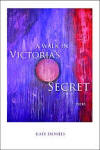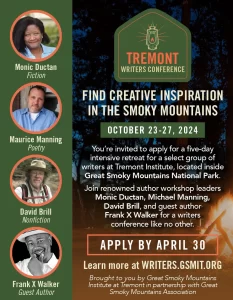A Walk in Victorias Secret
I was fortunate to hear Kate Daniels read many of the poems from A Walk in Victoria's Secret when it was still a work-in-progress. I'm a firm believer in getting a poet's verbal take on their own work, and while I've been disappointed on some occasions (Wallace Stevens, anybody?), the experience is often revelatory. Daniels was not particularly intense or melismatic in her delivery, but she was involved in the poems well beyond the performance itself—connected might be a better word. The effect of that connection was that she-as-reader was a potent conductor not just of the words on the page, but the emotive power beneath them—she conveyed that sentiment without telegraphing it ahead, or lapsing into sentimentality; a distinct advantage when you are a narrative poet, which resulted in an audience that hung engrossedly on her every word.
I was fortunate to hear Kate Daniels read many of the poems from A Walk in Victoria's Secret when it was still a work-in-progress. I'm a firm believer in getting a poet's verbal take on their own work, and while I've been disappointed on some occasions (Wallace Stevens, anybody?), the experience is often revelatory. Daniels was not particularly intense or melismatic in her delivery, but she was involved in the poems well beyond the performance itself—connected might be a better word. The effect of that connection was that she-as-reader was a potent conductor not just of the words on the page, but the emotive power beneath them—she conveyed that sentiment without telegraphing it ahead, or lapsing into sentimentality; a distinct advantage when you are a narrative poet, which resulted in an audience that hung engrossedly on her every word.
On the page, Daniels is just as engrossing, but more lackadaisical readers may be put off by first impressions. For example, part one of A Walk in Victoria's Secret is comprised of seventeen poems, most of which utilize lengthy lineation, which can appear exhausting (and exhaustive) to the casual browser. Part two doesn't completely jettison that propensity towards horizontal lines, but it does, cosmetically anyway, diversify the look and length of some of its poems. I hesitate to call Daniels' overall style “no frills,” but aside from occasional dropped lines, italicized phrases, or indentation, the end result is an exterior plainness masking deeper complications.
Those “complications” include motherhood, family dynamics and dysfunction, aging, class conflicts, sexuality and sexual politics, and racial tensions. Because she is a white southerner, who grew up witnessing segregation's pernicious effects at a particularly tumultuous time in history, the latter is a subject in a number of poems here—“Autobiography of a White Girl Raised in the South,” “Doc,” “Dogtown, 1957,” “Photo by William Christenberry,” “Late Apology to Doris Haskins,” and “Homage to Calvin Spotswood.” While each approaches the subject from a slightly different angle, Daniels’ voice remains consistent: guilt-edged, rueful, ever questioning. “Homage to Calvin Spotswood,” however, crystalizes Daniels' perspective not just on race, but on other concerns as well. It begins:
Because I couldn't bear to go back to the south side
of Richmond and the life I had led there—the blaring
televisions, the chained-up hounds, the cigarettes hissing
in ceramic saucers, the not never's, I'm fixin' to's,
the ain'ts—because anything at all was better than that,
I took the job. The four bucks an hour, the zip-front,
teal-colored, polyester uniform, the hairnets and latex gloves…
Daniels recalls her stint during college as “nurse's aide on an oncology ward for terminal patients,” and while such a milieu is rife with potential for premature tearjerking, she leavens the demands and constrictions of pure memoir for the sake of a greater epiphany—that “even in the final stages / of a violently invasive terminal carcinoma, nothing daunted” Spotswood, not even “in his final hours, / undiminished, unredeemed, unrepentant, his poor black body burning and burning.” There's more to it, of course, but part of the pleasure here, as well as elsewhere in A Walk in Victoria's Secret, is getting caught up in the narrative, allowing it to take you where it will.





